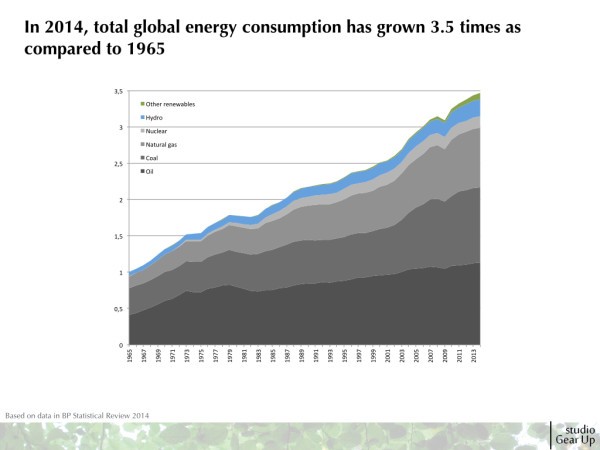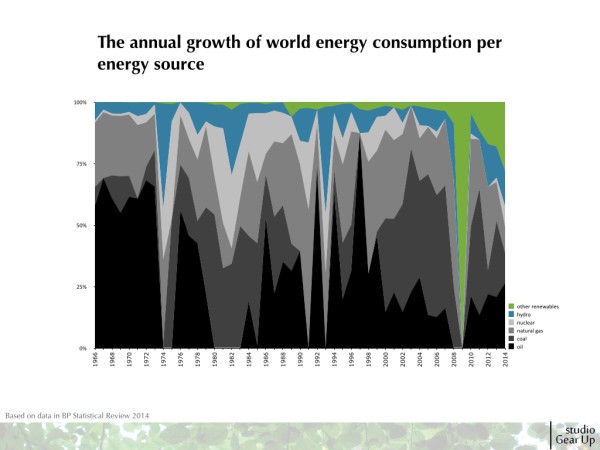Over 2014 the world’s energy consumption has increased, as can be conluded on basis of the June-2015 numbers of the BP Energy Statistical Review. The majority of resources to fuel this growth are still fossil based. The share of renewables is rapidly growing in importance. However, decreasing world fossil fuel consumption and fueling the growing energy consumption by renewable sources still remains a daunting challenge.
The share of renewables is rapidly growing in importance. However, decreasing world fossil fuel consumption and fueling the growing energy consumption by renewable sources still remains a daunting challenge. The growth of fossil fuels and renewables from 2008 (credit crisis) onward, tends towards reaching growth parity. The big question is when will the growth of the world’s renewable energy consumption turn into growth dominancy?
The growth of fossil fuels and renewables from 2008 (credit crisis) onward, tends towards reaching growth parity. The big question is when will the growth of the world’s renewable energy consumption turn into growth dominancy?

High blends of renewable fuels for the heavy-duty fleet in the Netherlands
KiM Netherlands Institute for Transport Policy Analysis (Kennisinstituut voor Mobiliteit – KiM) commissioned studio Gear Up to conduct research to explore the options for high-blends of renewable fuels in the heavy-duty fleet. This research served as input for KiM’s (2025) report: Renewable fuels in high blends in road freight transport , which provides recommendations for Dutch policy makers aiming to shape climate action in the road sector. The study sets out to explore alternative fuel options available to heavy-duty vehicles given that there is “uncertainty about the pace of truck electrification”.


